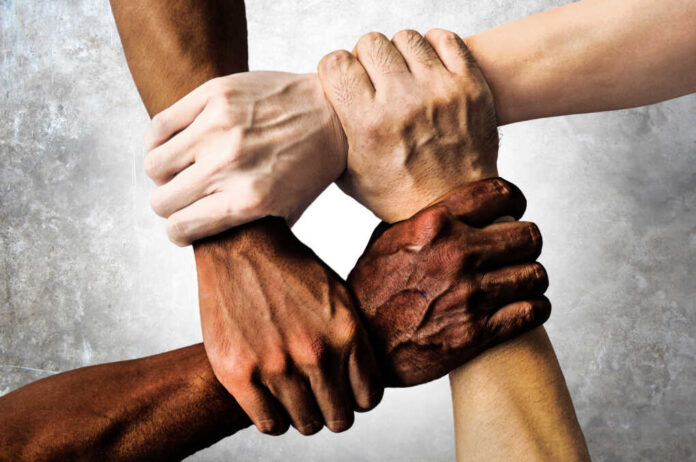
New research reveals that experiencing racism increases the risk of poor mental health ninefold, disproportionately affecting racial and ethnic communities across America and creating barriers to appropriate care.
At a Glance
- About 31.5% of high school students report experiencing racism at school, with Asian, multiracial, and Black students facing the highest rates
- Individuals who experience discrimination are nine times more likely to develop depression and anxiety
- People of color face significant barriers to mental health care despite similar or greater need compared to white Americans
- Racism causes both immediate psychological distress and contributes to chronic physical health conditions through prolonged stress responses
Discrimination’s Profound Impact on Mental Wellbeing
Racism and discrimination create devastating ripple effects throughout the mental health of affected communities. Recent studies show that high exposure to discrimination increases the likelihood of depression and anxiety ninefold, while even low exposure doubles the risk. These findings highlight how even brief encounters with discrimination can trigger serious mental health challenges. Among adolescents, approximately 31.5% report experiencing racism in school settings, with Asian, multiracial, and Black students facing the highest prevalence of discriminatory treatment. The psychological burden falls heaviest on these young people during critical developmental stages.
The COVID-19 pandemic further illuminated these disparities, with 90% of U.S. adults now acknowledging the country faces a mental health crisis. During the pandemic, communities of color experienced disproportionately higher hospitalization and death rates, compounding existing mental health challenges with new trauma and grief. This convergence of pandemic stress with ongoing discrimination created a perfect storm for mental health deterioration in already vulnerable populations. The physiological response to racism-induced stress can trigger immediate anxiety and depression while setting the stage for long-term health complications.
Barriers to Mental Health Support
Despite similar or sometimes higher rates of mental health conditions, racial and ethnic minorities face significant obstacles in accessing appropriate care. The KFF survey reveals that among adults reporting fair or poor mental health, white adults (50%) are much more likely to receive mental health services compared to Black (39%) and Hispanic adults (36%). This disparity stems from multiple factors including financial barriers, lack of culturally competent providers, and mistrust of healthcare systems based on historical mistreatment. Many individuals from marginalized communities also face stigma within their own cultural contexts about seeking mental health support.
Cultural incompetence within healthcare systems further compounds these challenges. Black individuals are frequently misdiagnosed with schizophrenia at higher rates than their white counterparts, while BIPOC youth are more likely to be directed to juvenile justice systems rather than mental health services. One-third of Muslim Americans report perceiving discrimination in healthcare settings, directly correlating with increased depression and anxiety. These systemic failures create a cycle where those most affected by racism-induced mental health issues are least likely to receive appropriate diagnosis and treatment.
The Physical Toll of Racism
The impact of racism extends beyond mental health, manifesting in physical symptoms and chronic conditions. Research demonstrates that stress from racial discrimination can elevate blood pressure, weaken immune system function, and increase vulnerability to various chronic diseases. The constant vigilance required to navigate discriminatory environments triggers a chronic stress response that affects nearly every bodily system. For many people of color, this creates a double burden of managing both psychological distress and physical health complications stemming from the same discriminatory experiences.
Different racial and ethnic groups experience unique challenges. American Indian and Alaska Native populations face elevated rates of mental health issues linked to historical trauma and ongoing marginalization. LGBTQ individuals from communities of color experience compounded discrimination based on multiple identities, resulting in more than twice the likelihood of developing mental health disorders compared to heterosexual counterparts. Socioeconomic factors further complicate this picture, as racism contributes to financial inequality that limits access to quality healthcare, safe housing, and other social determinants of good health.
Moving Toward Solutions
Addressing the intersection of discrimination and mental health requires comprehensive approaches. Schools can implement policies that directly confront racism while providing professional development to increase staff awareness and intervention skills. Healthcare systems must prioritize cultural competence training to reduce misdiagnosis and improve treatment outcomes. Creating more accessible pathways to mental health services, including telehealth options and community-based programs, can help bridge the care gap for underserved populations who currently face the greatest barriers to support.
Recognizing the unique mental health challenges faced by different racial and ethnic communities is essential for developing effective interventions. One-size-fits-all approaches to mental health often fail to address the specific ways discrimination affects various groups. As awareness grows about the profound connection between racism and mental health outcomes, healthcare providers, policymakers, and community organizations have the opportunity to create more equitable mental health systems that acknowledge and address the complex realities of discrimination’s impact on overall wellbeing.


















